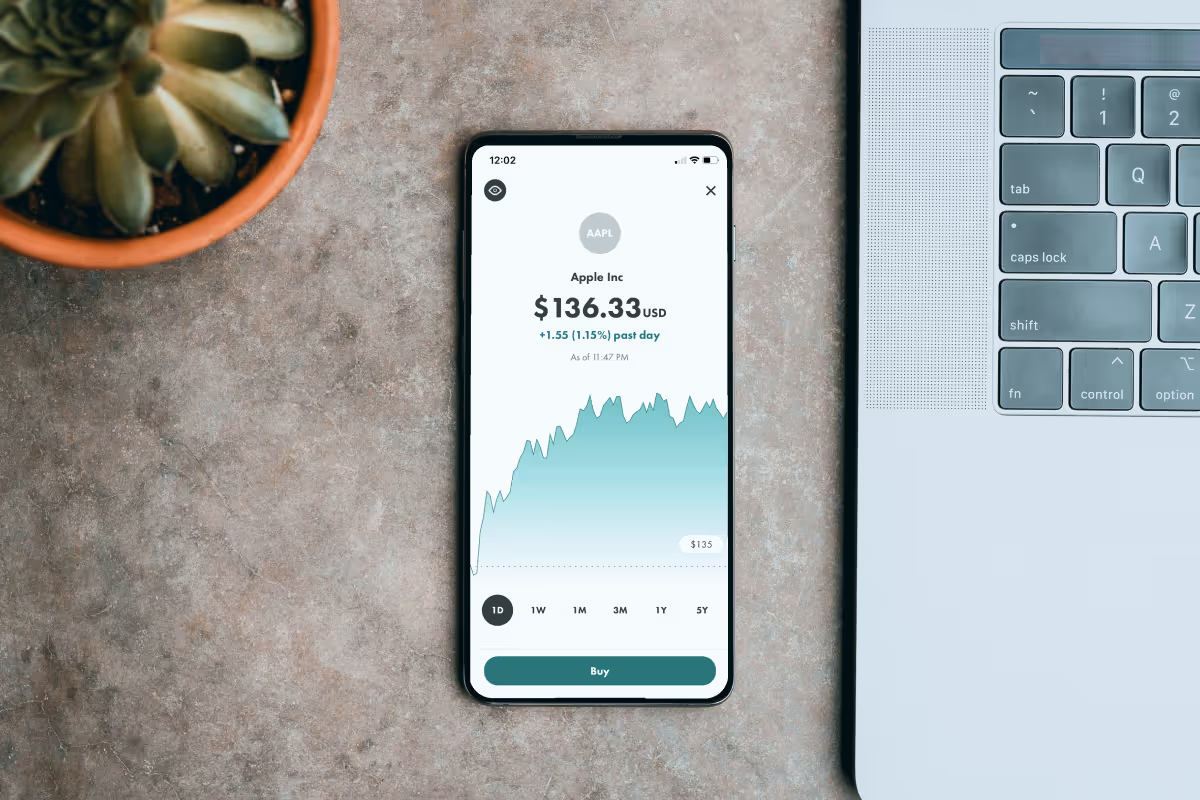Migrations, volatile economics, historically-low mortgage rates – all of these factors make real estate apps very highly demanded products. At the same time, this rush creates a highly competitive real estate apps’ market. So you have to be fast in finding your market fit to gain the lead.
As a Product Manager, I have personally faced the problem of finding the product-market fit for a real estate app. We have come through many milestones of building real estate apps with my team before launching a successful app for the Dubai market. From these experiences, I deduced valuable lessons that I want to share with you.
Let's dive in and find out what it takes to create a demanded product to solve real estate problems!
Real Estate Mobile Apps: Definition and Types
Firstly, let us figure out what we are talking about in the context of real estate apps. The good news is, you do not have to restrict yourself to simply a software solution of one kind only. Look around, there are multiple players on the real estate market: sellers, renters, landlords, agents, etc. Thus, your real estate app can solve problems in different parts of the process or for different users. Let us look at some of them.

Renting/House Hunting Apps
This one is probably the first type that comes to mind when you think of real estate apps. This property listing allows searching for accommodation based on specific parameters, like address, region, city, neighborhood, etc. Listing-based apps require close partnership with MLS – multiple listing services. These are databases of accommodation offerings available on the market at a point in time.
Examples: Zillow, Trulia, Nomad

Real Estate Agents’ Apps
These apps are instruments that help real estate agents or brokers provide their services. These could be virtual 3D tours around the apartment, communication within the agents’ community and clients, documentation, and property management. Such software can be very helpful in reducing the amount of paperwork and simplifying the processes.
Examples: Calendly, Trafft, Quickbooks, Yaza.
Real Estate Investment Software
Real estate investment is an aspiring niche. Solutions that allow potential monitoring purchases are highly demanded among investors and agents. There is one requirement to such apps, though – they need to be highly customizable.
Examples: DiversyFund, ArrivedHomes, EquityMultiple

Must-Have Features for a Real Estate Mobile MVP
MVP is a minimum reliable product. It means that this product has a minimum number of features in it, and it is made within minimum timeframes and with minimum effort. Yet, the part "viable" means that such a product needs to perform the app's core functionality and let early adopters accomplish their goals. In the case of a real estate app, these should be simple features that allow users to find proper accommodation.
Here are the features that you might want to have in your real estate app with some examples from our client’s case Nomad:
Search filters
The first thing on a real estate app is using a search engine.
Besides simply providing an engine, it is better to ensure it has well-structured filters to make the search more engaging and faster. This is especially important for mobile users who use the app on the run (in queues, taxis, transport, etc.).
You can include such filters as:
- Location
- Property type
- Price
- Year of constructions
- Neighborhood

Map integration
One can hardly imagine a real estate mobile app without a map. Thankfully, it is not difficult to provide. You do not have to develop your own map solution. Instead, you can integrate an off-the-shelf map solution from such third-party providers as Google Maps or Mapbox. Read more about how to choose a Map provider in our article Mapbox Vs Google Maps: What Maps API Is Best For Your App?
Expert’s Protip: Integrating a map into a mobile real estate application can be challenging. The problem is that the mobile screen is much smaller than a computer’s one. So when the user zooms the map on their phone, you need to make sure it does not blur. Also, make sure you've predicted your spendings (there may be a lot of requests to the map API).

Administrative Panel
Another part that should be included in your MVP is the administrative panel. The panel defines who can submit or remove listings, manage the listed properties or receive reports from rental applicants. There is good news for developers – you do not have to build an administrative panel from scratch. Instead, you can integrate an existing solution, customize it to your needs and adapt the design.
Chat solution
Instant communication is also an essential factor in searching for accommodation. Your user will more likely send a message to a realtor in a chat than call one. By making someone call, you complicate finding the real estate object. So another feature that for sure should be in your real estate app is a chat.
Review booking
You will also make users’ life a lot easier if you allow them to see the time slots for apartment reviews online. This would eliminate the step of making a call, which would significantly increase the chances that a user will book an appointment.
Registration
Including registration in your app is a great way to customize your product. Creating an account will potentially save users’ search filters or achieve their favorite offerings into a “Favorites” box.
By the way, the registration feature is much easier to introduce than it seems. In fact, you do not have to build it from scratch. Instead, you can use the users’ email addresses, contact or social media accounts (Facebook, Google Account, or Instagram).

Nice-to-Have Features for a Real Estate Mobile App
So let us imagine, you have successfully launched your MVP. But what next? How can you scale up your product to bring even more value to users? Well, one way to do it is to introduce additional features. Here is the list of such functionalities that you can make:

Saved apartments tab
It often happens that partners/family members/friends (whoever is going to live together) search for apartments separately, save them and then review together (or share links with each other).
No wonder, sometimes you need to get back to the suggested options many times to make a choice. So providing such a feature to your users will bring additional value to the UX experience.
Comparison feature
Choosing an apartment to live in is a big challenge. It can be difficult in both ways: when there are no options available and too many reasonable options to choose from. When searching for apartments on the web, users tend to compare options by reviewing them in different browser tabs.You can make their lives easier by providing a comparison feature.
Extended search filters
Another way to help your users is to make detailed search filters. Do not limit yourself to simple parameters like location, room size, or amenities. Think of other factors that influence the choice of your audience, for example:
- Opinion of the neighbors about the district;
- Information about the crime rate in the region;
- Likelihood of natural disasters.

Developing a Real Estate App in 5 Steps: Nomad example
Finally, we have arrived at the real estate app development process. Firstly, all mobile app development processes are the same:
- Research
- Develop
- Launch
- Iterate.
However, real estate app development has some specifics that make it distinguishable. This section will talk about the challenges of developing a real estate mobile app at every stage.

Step 1. Find your goal
You cannot build your app out of a vacuum. Even if you do so, your product is likely to fail. To avoid this outcome, you should determine which user’s problem the product will cover. For that, you need to:
- Identify which market you are targeting;
- Choose the target audience;
- Explore the market and find users’ pain.
At the Nomad project, the client approached us with a particular pain – the chaotic organization of the real estate market in Dubai. All the listing-based platforms at that moment swarmed with fake offerings and buzzy agents. In such circumstances searching for an apartment turned into months of toilsome search.
Our goal was to create an app that would alleviate the process of house searching in Dubai, curtail the bureaucracy and tackle the monopoly of agents.
Step 2. Think how you will stand out
After you have done the market research and met your competitors face to face, there is a question to ask – how are you different from them? What is the feature, detail, or service that sets you apart from everybody else? In other words – what is your reason to believe?
The thing is, your product should not be unique. But, maybe, uniqueness is not your ace. What if it is availability that makes your product valuable? Or perhaps you provide a smooth organization that no other competitor can give?
Take your time to think of it!
Step up with our roadmap for real estate business.
Step 3. Collect the listings
Listings are the lion's share of any real estate app. These are a database of real estate data or apartment and house offerings ready to be integrated into your app. Listings are essential, as when you start a real estate app, you need to be sure you have something to offer your users.
The good news is that listings can be easily integrated into your app. The bad news is that it is not always possible to do it, as MLS is not always available on every market. However, there are special brokers' communities at some markets that you enter that manage such listings. You can partner with them and call it a day in this lucky case.
Yet, sometimes there is no unified database on the market. In these circumstances, you need to collect the database by yourself.
Turning to the Nomad case again, we had to go there. The Dubai market did not have its own MLS when we were launching the app. So we had to contact brokers and individual realtors to collect our listing of apartments.
Besides the listing, there are also a few more things to consider here:
- How will you update your listing database?
- Can your users upload their offerings? Or can only agents make their listings?
- Will you have moderators or administrators on your platform to check if the offerings are real?
Step 4. Gather a team of professionals
It is alluring to fall in love with a new idea when working with it. You go to sleep thinking of your new product, and you wake up thinking of how it will work. Unfortunately, when you are in love with something, it is hard to challenge it. Eventually, you may find out there is no demand for your product on the market.
To avoid this situation, you need a pool of product team who can put your idea to test with real users. Then, only after the idea is validated can you go on with the development part. And here, you also need a team of developers.
The good news is you can get both product managers and programmers in one team, working with a product development studio. At Uptech product studio, we help cofounders validate their ideas and implement them in code. Look at our work here.
Step 5. Develop MVP
Once you and your product team have validated the idea, the development part comes along. In startup development, everyday matters. For MVP, it is important to build a basic version of your product fast and easy. Yet, you need to foresee how your product will potentially scale up and adapt the architecture for such a case.
Here the product development studio is also here to help you. They will help you find the easiest way to implement your idea within months. At the same time, the Web Architect specialist will see to the scalability of your product’s architecture.
.png)
Wrap-Up
Real estate mobile app development is a competitive niche. Such big names as Trulia and Zillow indeed led this competition and set the game's rules for everyone. However, this does not mean you should not try entering this race. Find your market, audience, niche, and bring a solution to that particular group of people. Here, you have built a new startup!
If you want more suggestions on how to implement your idea, contact us! We are always happy to talk about new ideas!
























































































.avif)











